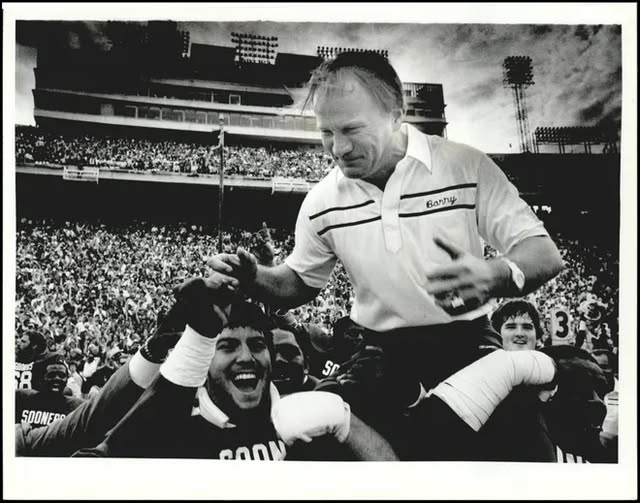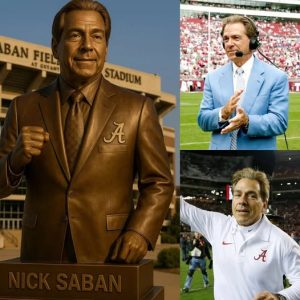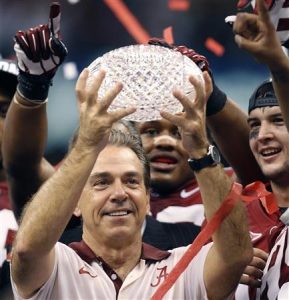
In the pantheon of football legends, few names command as much respect and reverence as Barry Switzer. A coaching icon with a swagger all his own, Switzer etched his legacy into the annals of both college and professional football history. From his thunderous reign at the University of Oklahoma to hoisting the Lombardi Trophy as head coach of the Dallas Cowboys, Switzer is one of the rare figures to straddle the sport’s two greatest stages and leave both triumphant.
This is the story of Barry Switzer — the brash, bold leader who conquered college football, then went on to scale the NFL’s highest peak.
The Early Years: A Tough Start in Arkansas
Born on October 5, 1937, in Crossett, Arkansas, Barry Layne Switzer endured a childhood marked by hardship. His father, Frank Mays Switzer, was a bootlegger who spent time in jail, and his mother tragically took her own life when Barry was still a teenager. These painful experiences instilled in Switzer a toughness that would later define his coaching style — gritty, resilient, and unapologetically bold.
Switzer played football at the University of Arkansas under coach Frank Broyles, lettering three times as a guard. Though not the most naturally gifted athlete, he was a cerebral player who displayed an early knack for leadership — traits that would shape his legendary coaching career.
Dominating the College Scene: The Oklahoma Dynasty
Switzer began his coaching career at Arkansas as an assistant before moving to the University of Oklahoma in 1966. He served under head coach Chuck Fairbanks, taking over as offensive coordinator and quickly introducing the now-famous Wishbone offense, which terrorized defenses across the country.
In 1973, Switzer became head coach of the Sooners — and what followed was one of the most dominant stretches in college football history. Over 16 seasons in Norman, Switzer compiled an astounding 157–29–4 record, winning three national championships (1974, 1975, and 1985) and 12 Big Eight Conference titles.
His Oklahoma teams were explosive, physical, and relentless. They boasted future NFL stars like Billy Sims, Tony Casillas, Keith Jackson, and Brian Bosworth. Switzer’s swaggering personality, matched with an uncanny ability to recruit and motivate, turned the Sooners into a national juggernaut.
During the mid-70s, Oklahoma was virtually unbeatable. Between 1973 and 1975, Switzer led the team to a 28-game winning streak. His back-to-back national championships in ’74 and ’75 cemented his status as a legend in Norman — and in college football at large.
Controversy and Resignation
Switzer’s time at Oklahoma wasn’t without turbulence. The program was repeatedly rocked by NCAA investigations and scandals involving players. The most infamous of these occurred in the late 1980s, including multiple arrests and allegations of misconduct.
Facing mounting pressure from the university and growing scrutiny from the media, Switzer resigned in 1989. It was a bitter end to a glittering era, and many believed it would be the last time Barry Switzer would ever hold a whistle.
But fate had other plans.
A Surprising NFL Call: Welcome to the Dallas Cowboys
In 1994, five years after stepping away from the game, Barry Switzer was unexpectedly tapped to become head coach of the Dallas Cowboys, replacing Jimmy Johnson. The decision shocked the football world. Johnson had led the Cowboys to back-to-back Super Bowl wins, and many doubted whether Switzer — a lifelong college coach — could command the respect of an NFL locker room full of stars like Troy Aikman, Emmitt Smith, and Michael Irvin.
But team owner Jerry Jones believed in Switzer’s leadership and championship pedigree.
Switzer embraced the challenge with his trademark confidence and swagger. Though his transition to the pros was rocky at first, he soon proved his doubters wrong.
Super Bowl XXX: NFL Glory Achieved
In just his second season at the helm, Switzer led the Cowboys to a 12–4 record and a dominant playoff run that culminated in a victory over the Pittsburgh Steelers in Super Bowl XXX, held on January 28, 1996.
With that triumph, Barry Switzer joined an exclusive club: one of only three head coaches in football history to win both a college national championship and a Super Bowl. The others? Jimmy Johnson and Pete Carroll.
While some critics contended that Switzer inherited a ready-made dynasty from Johnson, his ability to keep the Cowboys focused and motivated — particularly amid off-field distractions and locker room egos — spoke volumes about his leadership.
Switzer’s Super Bowl ring was more than a trophy; it was vindication.
Legacy: More Than Just Wins and Losses
Barry Switzer’s coaching style was unique. He was a player’s coach before the term became fashionable. He built deep relationships with his athletes, often defending them publicly and standing by them in times of trouble. His loyalty and compassion, especially to players from disadvantaged backgrounds, earned him lifelong admiration.
Despite the controversies, Switzer’s impact on the game remains undeniable. His coaching tree includes future stars and innovators, and his influence is still felt in how modern coaches handle player relationships and culture.
Switzer retired from coaching after the 1997 NFL season with a career record of 40–24 in the pros. In 2001, he was inducted into the College Football Hall of Fame, a fitting capstone to a historic college coaching tenure.
Off the Field: Humor, Honesty, and Heart
In retirement, Barry Switzer became a beloved media figure and philanthropist. Known for his sharp wit and magnetic personality, he often appeared on sports talk shows, always willing to speak candidly about football, life, and the lessons learned from both.
He also gave back to the community, especially in Oklahoma, through various charities and youth development programs. Switzer’s larger-than-life presence continues to inspire coaches and players alike.
He famously once said:
“Some people are born on third base and go through life thinking they hit a triple.”
It was classic Switzer — cutting, insightful, and true to his no-nonsense style.
The Switzer Standard
Barry Switzer’s career defies simple definition. He was both revered and reviled at times. He won big, stumbled, came back, and won again. His boldness and brashness sometimes rubbed people the wrong way, but they also made him unforgettable.
Few coaches can claim to have transformed a college program into a dynasty and then guided a professional team to Super Bowl immortality. Fewer still did it with the unapologetic fire and flare that Barry Switzer brought to every sideline he graced.
Conclusion: A Legend for All Eras
As fans reflect on the history of football, Barry Switzer stands out as a larger-than-life figure who broke molds, challenged norms, and won at the highest levels.
From the red clay of Oklahoma to the bright lights of Super Bowl Sunday, his coaching legacy is one of championships, charisma, and courage.
Switzer didn’t just coach football — he lived it, loved it, and left it forever changed.
Quick Facts: Barry Switzer
- Born: October 5, 1937, Crossett, Arkansas
- College: University of Arkansas (player)
- Head Coach, Oklahoma: 1973–1988
- Head Coach, Dallas Cowboys: 1994–1997
- Overall College Record: 157–29–4
- National Championships: 3 (1974, 1975, 1985)
- Super Bowl Champion: XXX (1996)
- College Football Hall of Fame Inductee: 2001





